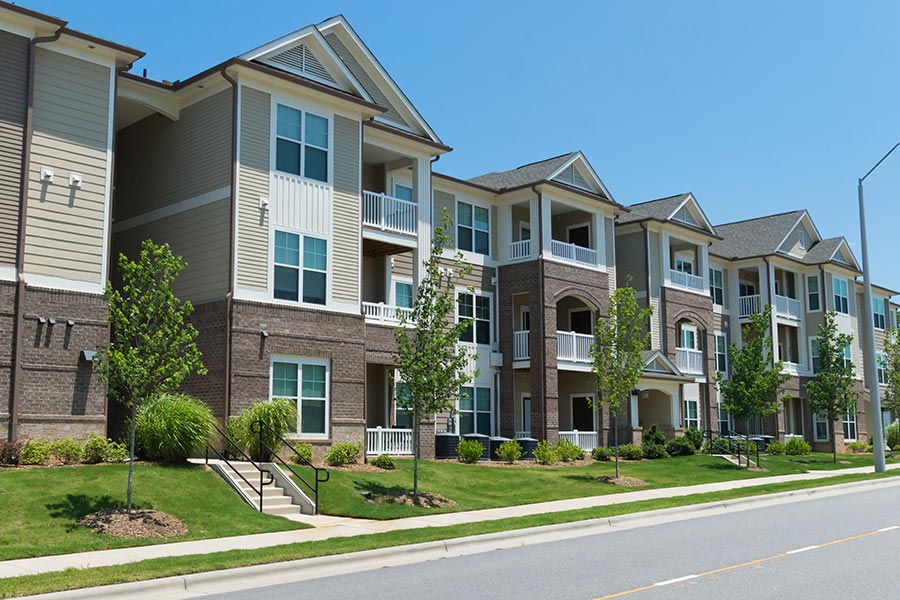Practical Tips for Mastering Affordable Homeownership in The Modern Market
Practical Tips for Mastering Affordable Homeownership in The Modern Market
Blog Article
Inexpensive Homeownership Options for First-Time Homebuyers
As the real estate market remains to evolve, first-time buyers encounter one-of-a-kind obstacles in safeguarding affordable homeownership alternatives. Numerous sources, including entitlement program programs, low-down-payment home loans, and targeted grants, have arised to minimize monetary stress. These initiatives not only help with homeownership but additionally foster neighborhood stability and economic development. Navigating these options can be complicated, and understanding which paths are most helpful requires mindful consideration. What methods can possible homeowners utilize to maximize their possibilities in this landscape?
Government Support Programs
Government assistance programs play an important role in making homeownership obtainable for numerous people and families. These programs intend to alleviate the economic burden connected with buying a home, especially for new buyers. By providing financial assistance, grants, and tax obligation incentives, government efforts aid bridge the space in between climbing housing expenses and the acquiring power of possible homeowners.
Different programs are available at the federal, state, and regional degrees. The Federal Real Estate Management (FHA) supplies insurance policy on loans, allowing lenders to provide a lot more desirable terms, such as reduced down settlements and lowered passion prices. Additionally, state and regional governments typically have their own initiatives, which might consist of down settlement help programs, property buyer education and learning courses, and favorable mortgage terms.
These programs are made to resolve the one-of-a-kind challenges encountered by reduced- to moderate-income households, including limited savings and credit rating. By fostering a setting where homeownership is a lot more available, government help programs not just sustain private ambitions however also add to neighborhood stability and financial growth. Comprehending and making use of these resources can considerably improve the prospects of effective homeownership.
Low-Down-Payment Home Mortgages
For lots of aspiring home owners, low-down-payment home loans present a sensible pathway to homeownership, specifically in today's difficult real estate market. These home loan alternatives normally require deposits varying from 3% to 5%, making it easier for newbie purchasers to get in the market without the problem of conserving for a substantial down repayment.
Numerous loan providers supply low-down-payment programs, including standard fundings backed by Fannie Mae and Freddie Mac, as well as government-backed options like FHA financings. These home loans are made to suit individuals with minimal financial savings while still supplying affordable rates of interest. Significantly, they allow purchasers to preserve more cash for other necessary costs, such as relocating prices, home inspections, and potential renovations.
Nevertheless, prospective homeowners ought to bear in mind the trade-offs connected with low-down-payment mortgages. A smaller sized down settlement might lead to higher regular monthly settlements and the necessity of exclusive home mortgage insurance (PMI), which protects lenders in case of default. Therefore, it is crucial for new purchasers to carry out complete research study and speak with home loan experts, guaranteeing they choose a low-down-payment choice that aligns with their long-term economic objectives. Affordable Homeownership.
First-Time Buyer Grants
Several newbie homebuyers locate that grants can significantly relieve the financial worry of purchasing a home, enhancing low-down-payment mortgage alternatives. These grants, frequently given by state and regional federal governments or non-profit companies, supply financial aid that does not call for repayment, making them an attractive alternative for those entering the housing market.
Eligibility for new homebuyer gives generally relies on income, creditworthiness, and the acquisition price of the home. Several programs are made to assist low- to moderate-income families, making sure that assistance reaches those who need it most. The application process typically includes documents of financial condition, property buyer education programs, and sometimes even a dedication to remain in the home for a specific period.
The quantity helpful differs extensively, with some gives offering a number of thousand bucks to aid cover shutting costs or deposits. Researching offered gives in your location is important, as programs regularly transform see post and might have details requirements. By leveraging these financial resources, novice property buyers can make homeownership a lot more available, eventually accomplishing their desire for having a home while reducing the initial financial strain.
Innovative Community Campaigns
Cutting-edge neighborhood campaigns are playing a crucial role in expanding cost effective homeownership choices for citizens. These campaigns commonly include collective efforts in between neighborhood federal governments, charitable companies, and economic sector stakeholders to develop lasting housing solutions customized to neighborhood requirements.
One significant method is the establishment of area land counts on (CLTs), which allow locals to purchase homes while the land continues to be had by the count on. This version assists preserve price gradually and avoids speculative rate boosts. Additionally, CLTs usually offer instructional resources and assistance solutions to empower newbie homebuyers.
An additional effective effort is the growth of mixed-income housing jobs, which blend cost effective units with market-rate homes. This strategy promotes comprehensive neighborhoods and lowers the preconception link typically connected with low-income real estate. Local governments are significantly supporting zoning reforms to assist in the building and construction of accessory house units (ADUs), which can supply added rental income for house owners while raising real estate schedule.

Tips for Budgeting and Saving

Next, develop a specialized interest-bearing account particularly for your future home acquisition. Aim to save a portion of your income continually, ideally 20% or more, to develop a significant deposit. Utilize automation devices, such as straight deposit or automatic transfers, to make saving much easier and extra consistent.
Furthermore, take into consideration adopting the 50/30/20 guideline: designate 50% of your revenue to demands, 30% to wants, and 20% to cost savings and financial obligation settlement - Affordable Homeownership. This approach advertises well balanced financial health

Conclusion
In recap, economical homeownership alternatives for novice buyers incorporate various resources such as entitlement program programs, low-down-payment home loans, and grants. These efforts not only assist in entry right into the housing market yet also promote neighborhood security and economic advancement. By leveraging these monetary devices, people can browse the intricacies of homeownership, eventually adding to a much more fair real estate landscape. Continued support and understanding of these programs are important for improving accessibility to homeownership opportunities.
As the real estate market proceeds to advance, new property buyers deal with unique challenges in continue reading this securing inexpensive homeownership options. By cultivating a setting where homeownership is more obtainable, federal government help programs not only support specific desires but additionally add to community stability and economic growth. By leveraging these monetary resources, new buyers can make homeownership much more available, ultimately achieving their desire of having a home while reducing the initial economic stress.
In recap, budget friendly homeownership choices for newbie buyers include numerous sources such as federal government help programs, low-down-payment home mortgages, and gives. By leveraging these monetary devices, individuals can browse the intricacies of homeownership, ultimately contributing to an extra equitable real estate landscape.
Report this page